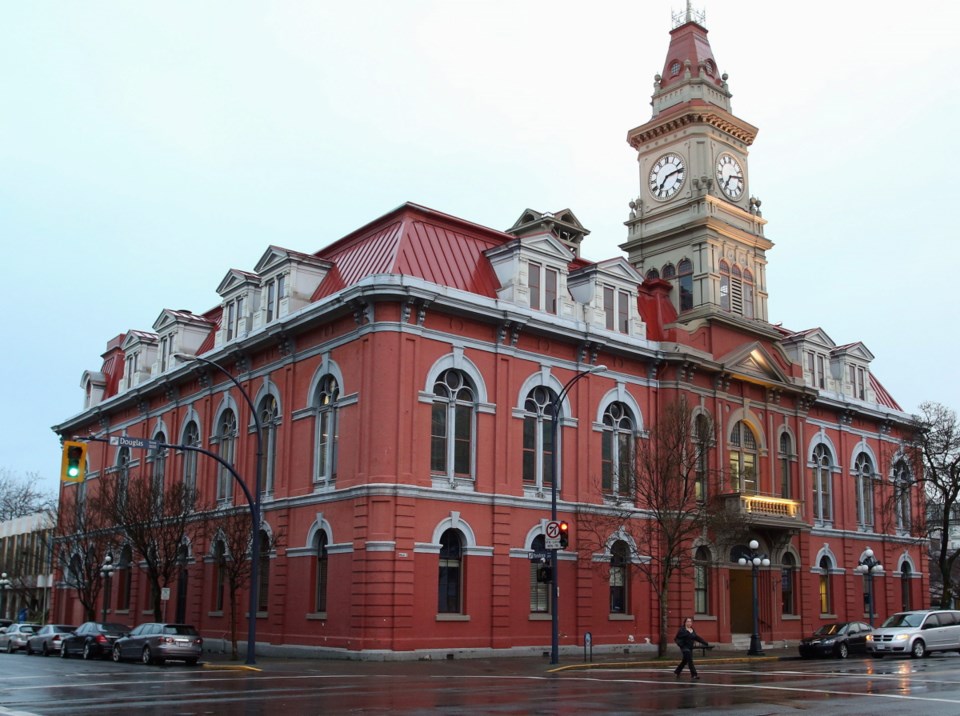Victoria is moving forward on plans to cut months from the development application process for affordable-housing projects operated by non-profits, after an hours-long debate Thursday.
Councillors voted to direct staff to prepare bylaw changes that would reduce the time and uncertainty involved in affordable-housing applications in an effort to boost the supply of housing for people with low incomes.
Staff estimate as much as four to nine months could be cut from the process by delegating the authority to issue development permits for affordable housing projects to city staff and eliminating the requirement for a rezoning application and public hearing when increasing density up to a maximum outlined in the official community plan. Projects would need to be consistent with design guidelines for staff to approve them.
The city has become increasingly unaffordable for people at the lower end of the income spectrum, with nearly a quarter of households in the city lacking access to affordable or suitable housing, council has been told.
Councillors asked staff last June to explore options to quickly increase the supply of affordable housing.
Several councillors appeared uncomfortable with the idea of improving affordability by delegating authority to staff.
Coun. Geoff Young, who along with Coun. Thornton-Joe opposed the motion, suggested the bylaw changes could give the appearance that council wants housing to be built, but doesn’t want to be seen as responsible for decisions.
“We can then wash our hands and say it wasn’t our fault that this project went ahead,” he said.
He cited concerns about limiting the opportunity for public feedback on projects by eliminating the need for public hearings.
Although he voted in favour, Coun. Stephen Andrew expressed similar worries.
“I would like to find a way that we can we can guard the public trust and provide comfort to those who are very nervous about what this could mean,” he said.
Staff will seek feedback from neighbourhood associations’ land use committees, non-profit housing providers and the Urban Development Institute to inform the policy changes. Andrew asked staff if the city should also request broader public input.
Karen Hoese, the city’s director of sustainable planning and community development, stressed the small number of projects that would be affected.
The city received 10 affordable housing applications during the past three years, with the highest number in 2019 at five. The city-generated application for the tiny-homes village near Royal Athletic Park is the only project in the first five months of 2021.
“This is not a significant city-wide change. It is a change. It is a way of helping support non-profits who are facing, who are struggling with getting their funding in place and with some of the timelines,” Hoese said.
Non-profit housing providers have identified uncertainty during the city’s development process when rezoning is required as the greatest challenge to building affordable housing, because it increases time, cost and risk to applications, and makes securing funding difficult because senior government programs often require approved zoning for funding eligibility.
The changes would only be applicable to projects operated by a registered non-profit housing society or government agency. Projects could be a mix of units priced at $375 per month for an individual (current income assistance rates), units geared to income and up to a maximum of 30 per cent for people living at housing income limits set by B.C. Housing. No projects with market rental units would be eligible.
Coun. Marianne Alto rejected suggestions in letters received by council that the policy changes are an opportunity for councillors to abdicate their responsibility for making decisions.
“I think what this actually is, is this is council doing the difficult, challenging and often controversial work of creating the policies … that actually are what is needed to really tell staff how to do this work,” she said.
Alto said she was reassured that staff have the capacity to work with applicants to meet design guidelines or reject projects that do not meet the criteria because council has already delegated authority to city staff to approve garden suites.



